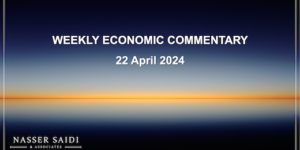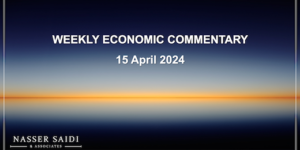Global Developments
The G20 meeting last week end failed to inject much confidence in global markets. In a nutshell, the leaders over-focused on issues related to crisis prevention (i.e., stopping the next one), rather than paying attention to measures aimed at resolving the present one. Markets took this as a sign that leaders are out of ideas and frozen until Obama takes oath. Hence global equities continue to fall in reaction to any news: for example corporate layoffs (e.g., Citi’s yesterday) are being viewed with gloom. Asia remains downbeat after the short lived enthusiasm sparked by China’s stimulus package and the GDP numbers from Japan confirmed a drop of 0.4%, qoq saar, after a Q2 down by 3.7% qoq, saar. Across Asia trade data indicate a deepening slump in exports across the board. Markets in Emerging Europe and Euroland are generally weak with the DJ Euro 50 down more than 4% reflecting downbeat expectations on the Old Continent.
No catalyst for a rebound seems in sight. Essentially the transmission of the credit crisis to the real economy has just begun, so investors are uncertain on the depth and the duration of the recession. Hopes that the markets have stabilized have thus far proven premature while additional tensions might arise in the credit card market. The IMF has unveiled an estimate of 1.2 trillion USD as the magnitude of the fiscal stimulus for the world economy (2% of global GDP) required for rekindling growth. Earlier the IMF has worked out a series of programs with Pakistan, Serbia, Armenia and Iceland, in addition to those for Ukraine and Hungary negotiated earlier. Japan announced a commitment to provide an additional $100 billion to the IMF resources, and invited others to help to double the Fund existing liquid reserves to $500 billion.
GCC Markets
All the GCC stock indices continued to reel under the heavy selling pressures from last week. A rebound on DFM on Sunday was sparked by rumors that the government of Abu Dhabi intended to buy shares in large Dubai based companies, but has since faded. Markets across the GCC had mixed performances this week but on a generally weakish note as the losses from last week are hardly compensated by some small rebounds. Apart from global uncertainty, falling crude oil prices and confused authorities messages (including a court order to close the Kuwait market) have contributed to deepen negative sentiment.
Market intelligence
In the UAE despite evident resilience, a number of factors are contributing to nervousness. First, the lack of solid up to date figures on the state of the economy, its debt and its refinancing which has given way to a series of gossip and innuendos likely to have magnified negative news (such as the lay offs or hiring freeze by prominent companies like Damac and Tamweel). Second, the steep increase in interest rates by banks to clients: despite a drop in central bank rates and injected liquidity, banks are not reflecting monetary easing to their corporate and retail clients. Anecdotal evidence suggests that even prime clients have been asked a 200 bp increase on their exposure. Such behavior threatens to push on the verge of bankruptcy a score of SMEs, exacerbating the difficulties of the Dubai economy. Last a major concern regards the real estate market: media have reported house price falling by about 30% in prime locations and land prices dropping even more in sites destined for new developments such as the Waterfront. A major blow to the sector was inflicted by the “interpretation’ of the law by RERA which imposes investors to pay 30% of the value of the contract in case they renege their contractual obligation on real estate purchases. This dubious handling of a key legal aspect risks undermining the reputation of Dubai as an investment destination for years to come.
Policy Implications
The GCC region is facing the current turmoil from a far stronger position than in the past. However, balancing the expected growth slowdown and addressing financial stress in certain segments of the banking sector, while attending to the region’s development needs, will be a challenge. Lack of data is the first aspect to tackle decisively. Second, debt management should become the primary economic policy concern with a consolidation of debt exposure by the public sector and key corporations a priority. This streamlining could be more efficiently achieved by planning a strategy of bill and bond issuances (including Sukuks) over a few years. Furthermore the public utilities projects and infrastructure financed through government bond issues should be subject to a clear identification of revenues (fee, charges) for repayment and appropriate cost benefit analysis.





